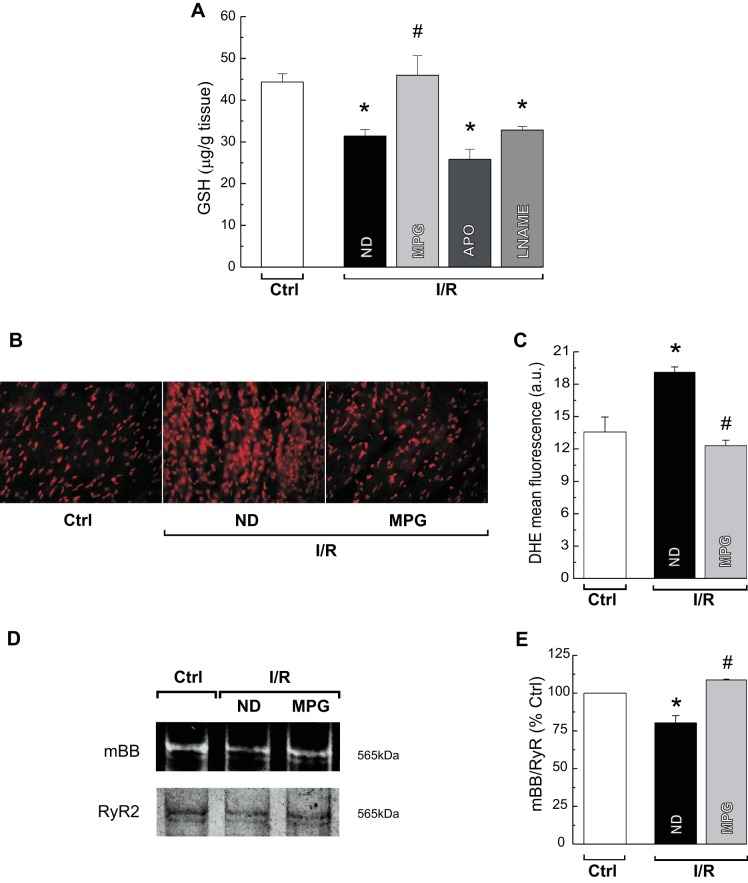Fig. 6.
Effects of the antioxidants on reduced GSH content, reactive oxygen species (ROS) formation, and RyR2 free thiol content during reperfusion. Average levels of reduced form of GSH measured in tissue homogenates from Ctrl or I/R rat hearts in the absence (ND) or presence of MPG, APO, or l-NAME are shown. Only MPG treatment restored GSH levels to Ctrl values (A). Representative images (B) and overall results (C) of dihydroethidium (DHE) staining for ROS production in Ctrl and I/R hearts without (ND) or with MPG treatment are shown. MPG reduces ROS production to Ctrl levels. Representative (monobromobimane, mBB) fluorescence intensity and Coomassie blue-stained gels of RyR2 (D) and average results of free thiol content on RyR2 (E) in Ctrl and I/R hearts in the absence (ND) or presence of MPG are shown. Content of free thiols decreases in I/R, and it is restored by treatment with MPG. The data represent means ± SE (n = 3–6 hearts). *P < 0.05 with respect to Ctrl. #P < 0.05 with respect to reperfusion with ND.

